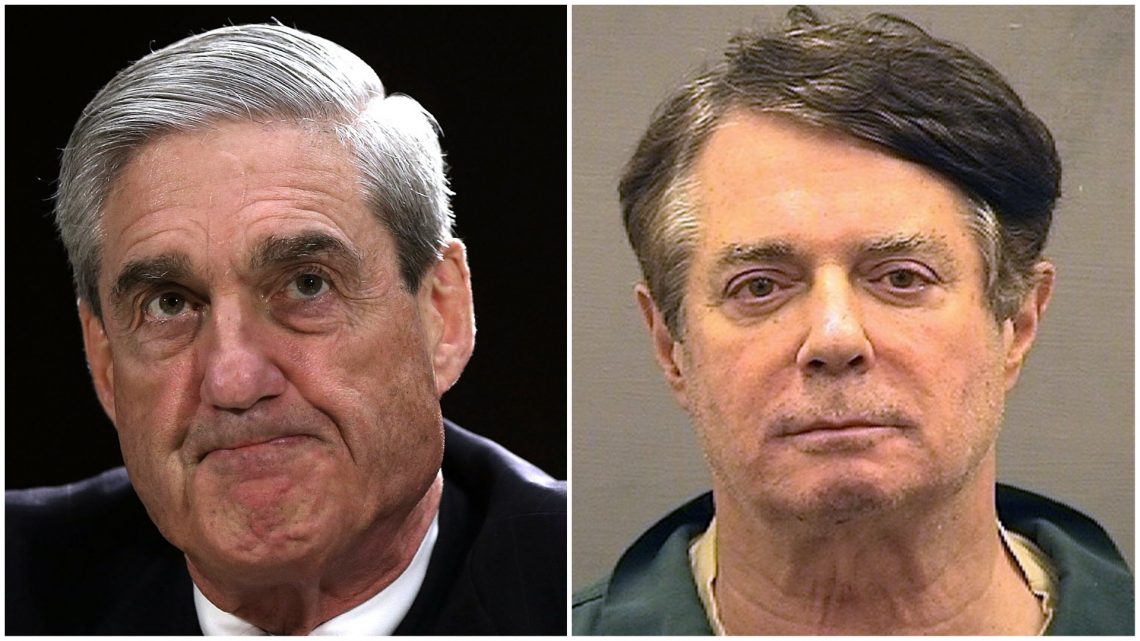
Robert Mueller Is Facing His Biggest Test Yet
August 15, 2018On Wednesday afternoon, closing arguments wrapped up in the first criminal trial carried out as part of the sprawling investigation of Russian interference into the 2016 US presidential election. And you didn't have to care about defendant and former Trump lackey Paul Manafort—or his weirdly expensive wardrobe or his frenemy Rick Gates or even the tax or bank fraud charges Manafort's facing—to be heavily invested in the outcome. That's because if the jury fails to convict Manafort in this case, despite the dozens of documents and bevy of witnesses laying out the evidence against him, it will be the first real defeat suffered by Special Counsel Robert Mueller and his team of hot-shot prosecutors.
Such an outcome wouldn't just be bad news for the lawman's sterling reputation—it would open up the larger probe of collusion between Trump and Russia to a fresh round of political attacks, and possibly even endanger the whole enterprise. And it would be just the latest demoralizing blow for prosecutors struggling to prove corruption is a real thing sullying American democracy at all levels, and especially depressing for those who want to see elites get punished for shady behavior.
To back up, Manafort has long been well-known as perhaps the most shameless player of the sordid international lobbying game that powers Washington. In fact, as detailed in a long and damning profile of the guy in the Atlantic earlier this year, he basically helped corrupt the entire American capital by ushering in the modern era of foreign money swashing through the district's streets. "Excess is Best" was the theme he used at one of his firm's annual soirees, a real-life version of the cartoonish plutocracy outlined in movies like Wall Street. But Manafort wasn't just greedy: He helped make advocating on behalf of foreign governments an increasingly normal part of how the sausage was made in DC.
So maybe it shouldn't have surprised anyone that he came under withering scrutiny when he signed onto Donald Trump's campaign as the reality TV star was solidifying his grasp on the Republican Party two years ago. As the New York Times reported in August 2016, Manafort's name was all over what appeared to be a network of secret cash payments that had been floating around Kiev, Ukraine, by a pro-Russian political party that lost its grip on power in 2014. That's around the time, according to Mueller's prosecutors, that Manafort went from just not paying taxes on at least $16.5 million in income to lying on loan applications to snag another $20 million and fund his Entourage-but-with-dictators lifestyle.
Among other things, as VICE News's coverage has shown, the trial has mostly served to make Manafort and Gates (who both held top positions on Trump's campaign) look like scheming liars and crooks. Gates has already pleaded guilty to lying to the feds and conspiracy agains the US, and so agreed to serve as the Mueller team's star witness; he described Manafort as a savvy, slithering operator who was well aware of the fraud he was perpetrating on banks, accountants, and basically everyone else he came into contact with. The defense has mostly consisted of attacks on Gates's character, with Manafort's lawyers zeroing on his extramarital affairs and admitted crimes to savage his credibility. But legal experts mostly seemed to think the lengthy paper trail and extensive witness list made the case something close to a slam dunk. (Manafort was also scheduled go on trial for separate charges of failing to register as a foreign agent and money laundering later this year.)
That's why it will be such a big deal if the jury somehow declines to convict. American juries and judges have struggled in recent years to make corruption charges stick. The Supreme Court has paved the way for that predicament, essentially raising the standard for proving corruption or bribery as part of an "official" act to the point that prosecutors need video of a politician explicitly promising to do something while being handed a bag of money. But Manafort isn't technically on trial for corruption. Instead, he's accused of specific white-collar crimes that appear to be deeply enmeshed in how the global elite due business. If Mueller fails to secure a conviction here, it would reinforce the conviction held by many Americans that wealthy elites play and win by their own rules.
But such a failure would also have more immediate consequences for the Russia probe, which has repeatedly been attacked by Trump and his allies, who call it a "witch hunt" and a waste of time. A jury rejecting the first case actually put before them to decide would be a major symbolic blow and provide fresh fodder for far-right conspiracists and others who think the whole thing represents some kind of deep state campaign against Trump.
And then, of course, there's the fact that failing to convict Manafort would deny prosecutors the chance to try to flip him, which gets much easier if he's facing the rest of his life in prison. Some observers are speculating that Manafort is holding out in hopes of a pardon from Trump, but he may simply believe he has a shot at acquittal. A not-guilty verdict or a mistrial would remove any pressure on Trump to pardon his former aide, at least for now, and make it that much harder for Mueller's team to lean on people in Trump's orbit—and that much easier for the president, whether by dangling pardons or just mocking the outcome, to chip away at the very idea of the rule of the law.
Mueller doesn't need Manafort to go to prison for financial crimes to get to the bottom of how and whether Donald Trump colluded with Moscow during his long, strange ascent to the most powerful job in the world. But a guilty verdict sure would make things easier.
Sign up for our newsletter to get the best of VICE delivered to your inbox daily.
Follow Matt Taylor on Twitter.


